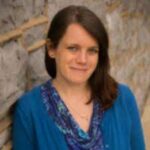This is the first in a series of remembrances on life and career of the late Susan Sell.
When I think about Susan Sell, I think about a life lived unapologetically, beautifully, and gratefully. I think about International Relations theory taught with irreverence and humility. I think about relentless kindness and fiery hope personified.
Susan was the first professor I had in graduate school, and although I learned so much from her class on International Relations theory, the most important lessons were those that were never actually part of the curriculum. I distinctly remember Susan coming into class and setting her phone on the table face up, telling us that she was waiting to hear that her boys had made it home safely from school and that she was going to answer their call when they came. Susan made it OK to be an academic mom; she was simply doing what she had to do as a parent, but she may or may not have realized that she was also setting an example for her students. For me, a 22-year-old first generation graduate student who arrived on campus without much knowledge of or concern for the rules of academia (and who had always planned to be a mom), this example was a lifeline; it was tacit permission to thrive outside of academia as well as within it. Susan prioritized her family unapologetically, and she championed her students and colleagues with gusto.
Academic women have carved out spaces in a profession that was—and in many ways still is— designed to keep us out. Having Susan as my first professor in graduate school was undoubtedly a life preserver that I never knew I needed when I entered a doctoral program. The Department of Political Science at George Washington University was—and still is—home to prolific scholars who are also caring mentors. Susan affectionately referred to the four women in the incoming 2008 International Relations cohort as the “Estrogen Club”. She told us we were awesome—loudly and enthusiastically, and often in the hallways. She encouraged us at every turn. She was also quick to offer the constructive criticism we so often needed, and she cautioned us against the delays of perfectionism. She warned us to avoid perfectionism, to send out article drafts and not to tinker with them endlessly until they are flawless in our eyes. “Send it out! What are you waiting for?” She told us to speak up, to embrace the weird in Political Science, and to understand where and why unjust power structures exist—and then to seek to dismantle them.
Long after my first semester in graduate school, I co-authored a book on what it means to be an academic parent, and the challenges that academic parents face as they endeavor to excel as both parent and professor. Naturally, I asked Susan to write one of the essays in that book. She had been an early role model of academic parenthood and dedicated mentorship for me, and we had kept in touch through the years. Susan so skillfully kept track of so many junior scholars, colleagues, and friends in her magnificent orbit, checking in on jobs, publications, babies, and pets, and making plans for coffee dates, lunches, and off-the-beaten-path outings at conferences. I wanted the book to close with an earnest but optimistic account of academic parenthood. Specifically, I asked Susan to write an essay as a senior scholar who had “made it” in the profession and successfully raised amazing humans. Her essay is one of the most colorful, upbeat, and unapologetic narratives in the book—the essay mirrored the author. She wrote about the lack of women mentors and the effect that absence of women had on her early days as a graduate student and young professor, about how her stubbornness carried her through quagmires of sexism and pregnancy complications, how motherhood quickly cured her of perfectionism, and how the flexible academic career is actually a fitting profession for parents. In short, she reminded us all that the academy is very often unfair, the trajectory from graduate school through tenure is winding and messy, that mentorship is a lifeline, and that the most important priorities are family and friends.
Susan Sell was a mentor and friend who left an indelible mark on countless young academics and beloved colleagues. She painted a picture of what it looks like to live a full life, motivated by endless curiosity and fierce hope, both inside and outside of academia. Her example teaches us to be serious scholars but not to take ourselves too seriously, to ask the biggest and toughest questions but to stop and appreciate the sunset.
Susan taught me much of what I learned about International Relations theory in graduate school, but the most important lessons I learned from her were not on a syllabus. The concluding line from her essay on academic parenthood sums it up so well: “I cannot imagine a more rewarding career—a lifetime of always learning, always being challenged, and being inspired by students, colleagues, and peers. But for me the best job of all is mom.” (Sell in Crawford and Windsor 2021, 205).


0 Comments
Trackbacks/Pingbacks